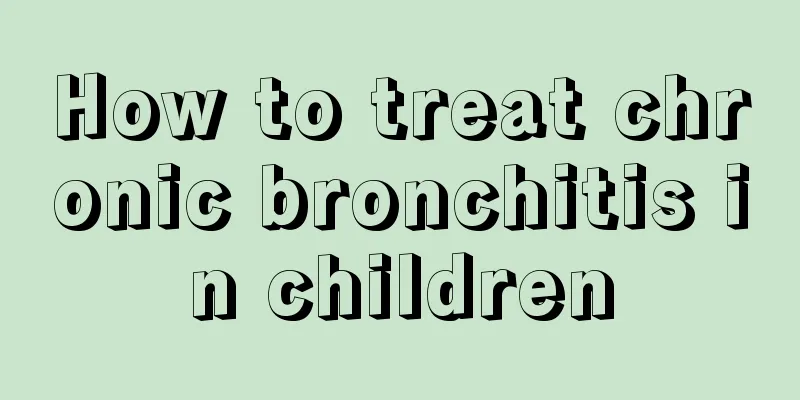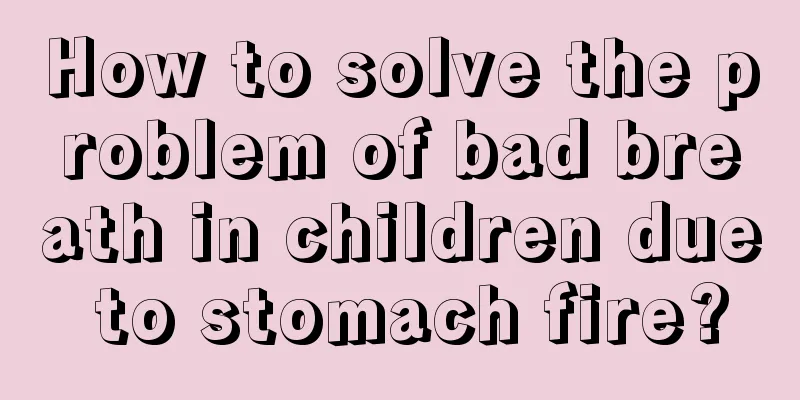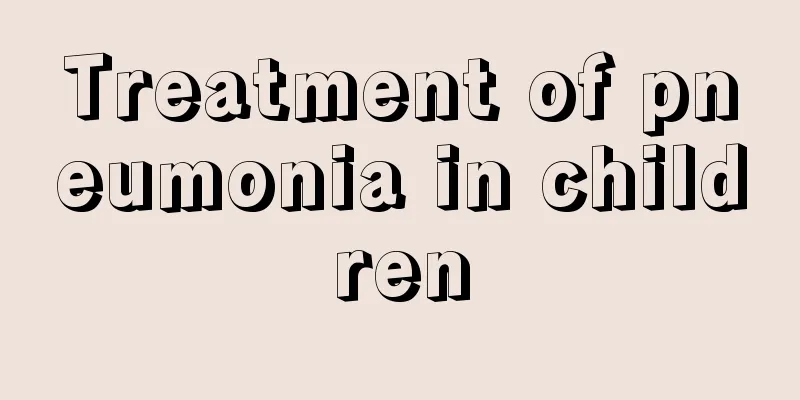What happens if the hernia becomes severe?

|
If you do not take it seriously after discovering that your baby has a hernia, the hernia will become serious and will grow larger and larger. Once it becomes serious, even if surgery is performed, the recurrence rate will be relatively high, and symptoms of incarceration may also occur. Therefore, when you discover that your baby has a hernia, you must treat it in time. Causes The root cause of inguinal hernia in children is that the processus vaginalis fails to close in time. The processus vaginalis is formed by the descent of the round ligament of the testis or uterus and usually closes within one year after birth. The processus vaginalis of newborns and infants under six months old is often not completely closed, but not all cases of non-closure of the processus vaginalis do not result in a hernia. If the infant's abdominal wall is not strong enough, such as premature infants and low-birth-weight infants, inguinal hernia is more likely to occur. Other conditions such as excessive crying, constipation, coughing, etc. that increase intra-abdominal pressure can also promote the formation of hernia. The right testicle generally descends later than the left, and the processus vaginalis takes longer to close. Therefore, right-side inguinal hernia is more common than left-side inguinal hernia, and unilateral inguinal hernia is more common than bilateral inguinal hernia. Umbilical hernia in children occurs because the umbilical ring does not close. The umbilical ring is formed during the embryonic period and continues to shrink as the fetus grows. The diameter of the umbilical ring of a normal newborn is about 1 cm. Under normal circumstances, the umbilical ring continues to shrink after birth until it finally closes. After the baby's umbilical cord falls off, the umbilical scar is a congenital weak spot. At the same time, during infancy, the anterior and posterior sheaths of the rectus abdominis muscles on both sides do not close at the navel, leaving a defect, which provides conditions for the occurrence of umbilical hernia. Various factors that increase intra-abdominal pressure, such as crying, constipation, diarrhea, coughing, etc., can all contribute to the occurrence of umbilical hernia in children. Clinical manifestations Characteristic clinical manifestations: a lump that appears and disappears or changes size in the groin area or umbilicus. The lump appears or grows larger when the intra-abdominal pressure increases when the child stands or cries, while the lump disappears on its own or by pressing with the hands in the early stages of lying down or after the child stops crying. In the early stages, children usually have no significant discomfort except for the characteristic mass. Parents often bring their children to the hospital because they find a small mass in the groin, asymmetry of the scrotum, or a mass near the navel. As age increases, the hernia sac will continue to grow and may become incarcerated and strangulated, and may even cause testicular or ovarian infarction and atrophy, so timely treatment is necessary. treat 1. Conservative treatment Inguinal hernia and umbilical hernia in children under 1 year old may heal on their own, so conservative treatment can be adopted. For larger or frequently prolapsed hernias, a hernia belt can be used for local compression, the purpose of which is to prevent the hernia contents from protruding. At the same time, children should try to reduce crying, coughing, constipation and other situations that increase intra-abdominal pressure. If a child is found crying and crying non-stop and the hernia cannot be retracted, it indicates that hernia incarceration may have occurred and the child should be sent to the emergency room immediately. 2. Surgery It is generally believed that inguinal hernia in children over 1 year old cannot heal on their own and should be treated surgically. However, age is not an absolute factor. It also needs to be considered in combination with the child's own situation. For example, if the child is less than one year old but has a large inguinal hernia or recurrent incarceration, the risk of conservative treatment increases and surgical treatment should be performed in a timely manner. If the child is over one year old but has a weak constitution and the hernia is not large, surgery can be performed at a slightly older age to reduce the risks of anesthesia and surgery. High ligation of the hernia sac is the main method for treating inguinal hernia in children. The operation is minor and is generally safe and reliable. prevention Hernia in children is caused by congenital developmental abnormalities, so it is difficult to prevent effectively. Avoiding premature births and low birth weight babies can reduce its incidence. Avoiding situations after birth that increase intra-abdominal pressure due to crying, coughing, constipation, etc. caused by other diseases can also help reduce the incidence rate. |
<<: Baby sleeping with tongue out
>>: What is minimally invasive hernia surgery?
Recommend
What should I do if my baby has a low fever of 38 degrees?
When the baby has a low fever of 38 degrees, the ...
When should children's supernumerary teeth be extracted?
Dental health is a very important matter. Many pe...
Children's stool is bloody when wiping their buttocks
In our lives, many children cannot wipe their own...
Early symptoms of hydrocephalus in infants
Extracerebral hydrocephalus in infants mainly ref...
What food should I eat to remedy a child’s slow growth?
Parents are the most anxious when their children ...
How to treat autism in children
It is a comfort for all parents to see their chil...
How to care for facial hemangioma in children?
Hemangioma on children's face is one of the m...
6 month old baby teething symptoms
The healthy development of a baby is a process th...
What is the problem with a three-year-old child who keeps coughing?
Why do 3-year-old children always cough? This pro...
What should I do if my child has chickenpox and a fever?
Infants and young children are very prone to chic...
What are the best ways to reduce fever in babies?
It is a common phenomenon for babies to have a fe...
Is it normal for newborns to fart?
Newborns must be taken care of meticulously by th...
Can I turn on the air conditioner when my child has a fever?
In the hot summer, air conditioning has become a ...
Why does it hurt when boys urinate?
When there are children at home, you must pay spe...
What to do if your child has buck teeth
The beauty of teeth can greatly enhance one's...









